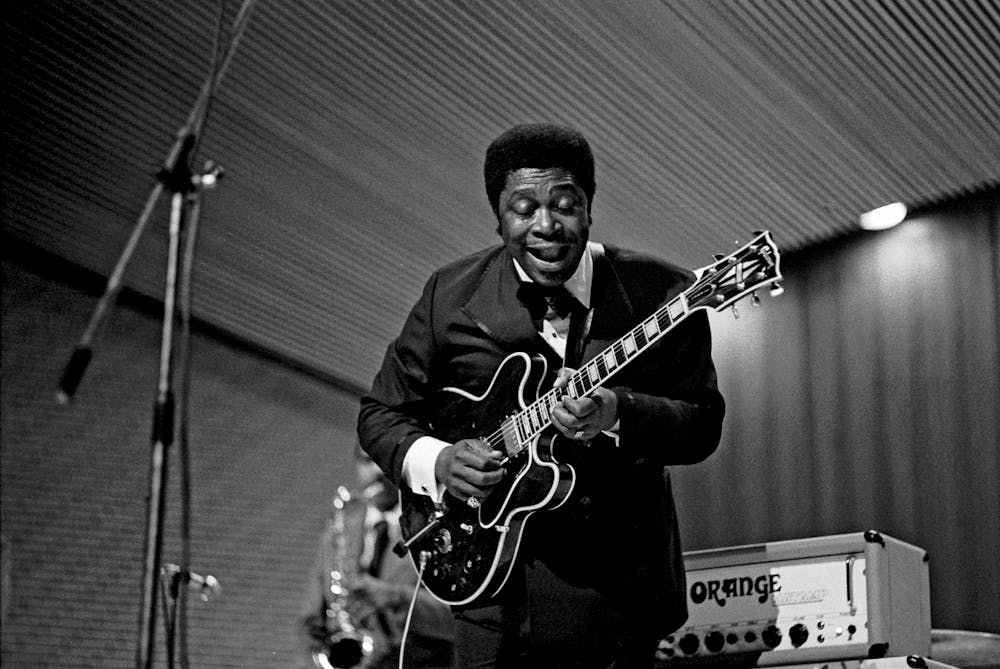On Feb. 13, artist and author Diane Williams presented a talk at Red Emma’s Bookstore on the life and legacy of BB King, one of the most influential blues musicians of all time. As a wide-ranging retrospective, it dealt not only with the life and music of BB King, but also with the history of blues itself, from its conception to its current space in the music world.
Williams began her talk with some of the most famous aspects of BB King’s past — his unique style of playing the guitar, his constant touring (averaging around 300 days a year at its peak) and the 15 children he had with different women across America.
However, a truly compelling moment was learning about how King experienced those moments that came to represent his legacy.
For example, Williams described just how King began to play the guitar with his signature shimmering vibrato when he was under the apprenticeship of his mother’s cousin, Bukka White.
Bukka, also a blues musician, loved to play the guitar with a slide, but King was never able to do it as well as him. In order to overcome this musical gap, King started playing his notes with a trill, giving them a quality that had never been heard in blues before.
Next, she explored his tours in detail as a black singer from the South traveling in the 1950s and 1960s, when Jim Crow laws were still in place. King did not hide his opposition to segregation. His widespread popularity among both black and white audiences was in itself a searing indictment of that system.
“If he would go to a gas station and be told by the attendant that he couldn’t use their bathroom even though he was paying for the gas, he would just leave, no matter how much gas he had left,” Williams said.
The decades on the road took great physical and emotional toll on King, but one of its most poignant effects was what it did to his relationship with his children.
Williams narrated a particular incident when King went to a get-together where several of his children had attended (who were young at the time), and when King got on the stage to play for the children, the first thing he said was — “Y’all don’t even know who I am, do you?”
Besides describing King’s life in such vivid detail, Williams also spoke about how she managed to collect this information. One of the most engrossing descriptions of this process of research came about in Williams’ attempt at interviewing King.
After watching him in concert in 2014, she realized that she was staying in the same hotel as King and his band.
His bandmates told her to speak to King in the morning, since nobody was allowed to disturb him at night.
The morning however, brought with it an earthquake, and in the ensuing commotion, King had left the hotel.
Future attempts to interview him would turn out to be impossible, as King’s health began to decline, and he died in May 2015. The process was not entirely unfruitful; the attempts led to her meeting Mary Alice Sniff, King’s stepdaughter, whose interviews and documents gave her the bulk of her information for her talks and her book on King’s life.
One of the most appealing parts of the talk was how participatory it was. Williams often asked questions, took questions and comments from the audience, sang songs with us and encouraged us to add to her stories.
For Williams, it was simply a way of “carrying forward the great tradition of story, of dance and music,” and one that was particularly engaging for the subject we were discussing.
Finally, Williams spoke about how the legacy of King, as well as blues music in general, would impact music and culture in the future.
“The thing about blues was it represented the lived experience. And kids today will not make the same music because they have not had the same experience,” she said.
However, the most important thing is “to remember the roots,” be it in rock, country music or hip-hop, which have all been shaped in their own way by blues, and even BB King himself.





